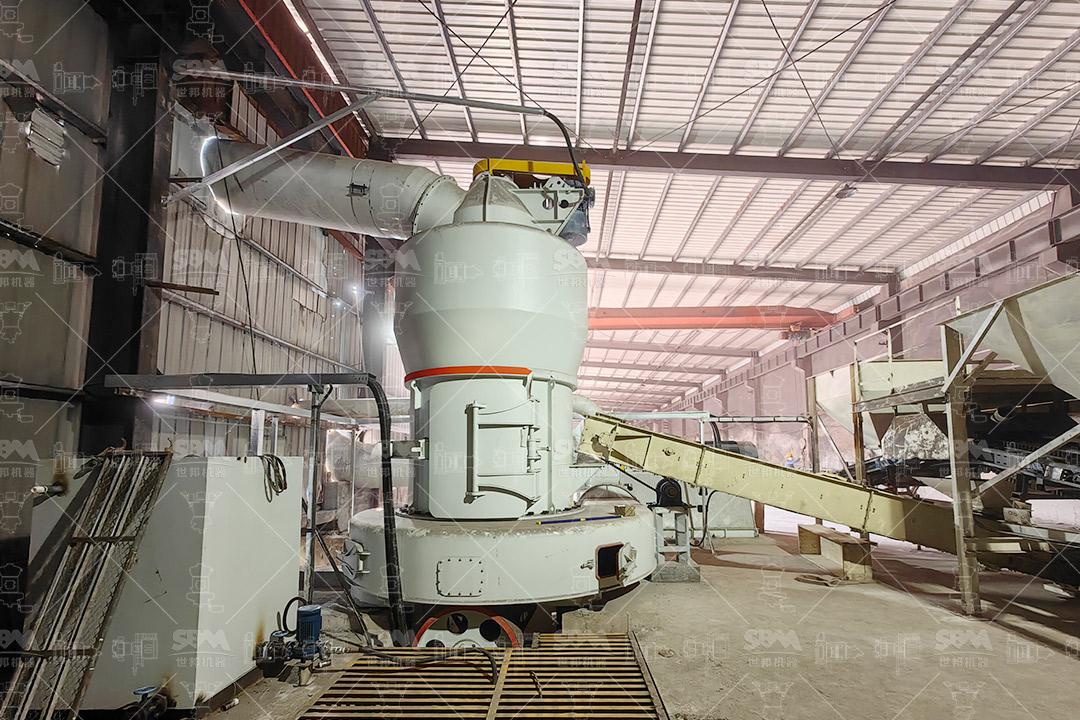Petroleum coke (petcoke), a carbon-rich solid derived from oil refining, has become an important fuel source for power generation and industrial heating due to its high calorific value. However, to achieve efficient combustion and energy conversion, petcoke must be ground to a specific fineness. Selecting the right grinding mill is crucial for optimizing production efficiency, energy consumption, and final product quality. This article provides a comprehensive guide to choosing the most suitable petroleum coke grinding mill, focusing on key technical parameters and operational considerations.

Understanding petroleum coke properties is the foundation for proper mill selection:
The target fineness directly determines mill type selection:
Throughput requirements significantly impact equipment selection:
Grinding energy consumption represents a major operational cost:
Vertical roller mills have become the preferred choice for large-scale petroleum coke grinding operations due to their excellent energy efficiency and drying capabilities. These mills integrate grinding, drying, and classification in a single compact unit.
Technical Advantages:
Recommended Product: LM Series Vertical Roller Mill
Our LM Series Vertical Roller Mill represents the latest advancement in petcoke grinding technology. With processing capacities ranging from 3-250 tons per hour and output fineness adjustable between 30-325 mesh (special models achieving 600 mesh), this mill series offers exceptional flexibility for various application requirements.
| Model | Grinding Disc Diameter (mm) | Capacity (t/h) | Main Motor Power (kW) | Output Fineness |
|---|---|---|---|---|
| LM130K | 1300 | 10-28 | 200 | 170-40μm (80-400 mesh) |
| LM150K | 1500 | 13-38 | 280 | 170-40μm (80-400 mesh) |
| LM170K | 1700 | 18-48 | 400 | 170-40μm (80-400 mesh) |
| LM190K | 1900 | 23-68 | 500 | 170-40μm (80-400 mesh) |
| LM220K | 2200 | 36-105 | 800 | 170-45μm (80-325 mesh) |
| LM280K | 2800 | 50-170 | 1250 | 170-45μm (80-325 mesh) |
The LM series features intelligent control systems with remote operation capability, specialized wear-resistant materials that extend component life by 3 times, and modular roller assemblies for quick maintenance. These mills are particularly suitable for large-scale power plants and industrial facilities requiring high throughput with consistent product quality.

For applications requiring extremely fine petroleum coke powders (325-2500 mesh), specialized ultrafine grinding mills provide the necessary precision and efficiency.
Technical Advantages:
Recommended Product: SCM Ultrafine Mill
Our SCM Ultrafine Mill is specifically engineered for producing superfine petroleum coke powders with D97 ≤ 5μm (2500 mesh). This mill delivers exceptional performance with capacity ranging from 0.5-25 tons per hour and energy consumption 30% lower than conventional jet mills.
| Model | Capacity (t/h) | Main Motor Power (kW) | Feed Size (mm) | Output Fineness |
|---|---|---|---|---|
| SCM800 | 0.5-4.5 | 75 | ≤20 | 325-2500 mesh |
| SCM900 | 0.8-6.5 | 90 | ≤20 | 325-2500 mesh |
| SCM1000 | 1.0-8.5 | 132 | ≤20 | 325-2500 mesh |
| SCM1250 | 2.5-14 | 185 | ≤20 | 325-2500 mesh |
| SCM1680 | 5.0-25 | 315 | ≤20 | 325-2500 mesh |
The SCM series incorporates vertical turbine classifiers for precise particle size control, special material grinding rollers and rings that significantly extend service life, and pulse dust collection systems exceeding international environmental standards. With noise levels below 75dB and fully automated operation, these mills are ideal for producing high-value petcoke products for specialized applications.
Medium-speed trapezium mills offer a balanced solution for general-purpose petroleum coke grinding with good efficiency and reliability.
Technical Advantages:
| Mill Type | Output Fineness | Capacity Range (t/h) | Specific Power Consumption (kWh/t) | Key Applications |
|---|---|---|---|---|
| Vertical Roller Mill | 30-325 mesh (600 mesh special) | 3-250 | 18-25 | Large-scale power generation, Cement industry |
| Ultrafine Mill | 325-2500 mesh | 0.5-25 | 35-50 | Specialized applications, High-value products |
| Trapezium Mill | 30-325 mesh | 3-45 | 25-35 | Medium-scale operations, General purpose |
| Ball Mill | 0.074-0.8mm | 0.65-450 | 30-45 | Traditional applications, Wet grinding |
Proper feeding is essential for stable mill operation:
Petroleum coke often requires drying before or during grinding:
Modern grinding plants must meet strict environmental standards:

When evaluating grinding mill options, consider the total investment including:
The true cost of grinding includes multiple factors:
A comprehensive evaluation should consider:
A recent installation of our LM190K Vertical Roller Mill for a 50 MW power plant demonstrates the benefits of proper mill selection. The system processes 23 tons per hour of petroleum coke with 10% moisture content to a fineness of 80% passing 200 mesh. Key achievements include:
The evolution of grinding technology continues to focus on:
Selecting the appropriate petroleum coke grinding mill requires careful consideration of multiple factors including material characteristics, required product fineness, production capacity, energy efficiency, and environmental compliance. Vertical roller mills, particularly our LM Series, offer excellent solutions for most large-scale applications with their superior energy efficiency and integrated operation. For ultra-fine grinding requirements, the SCM Ultrafine Mill provides precise control down to 5μm with remarkable efficiency. By understanding your specific requirements and matching them with the right grinding technology, you can achieve optimal energy conversion efficiency, reduce operating costs, and ensure long-term reliability of your petroleum coke processing operations.
Our technical team is available to conduct comprehensive feasibility studies and recommend the most suitable grinding solution based on your specific petroleum coke characteristics and production requirements. With proper mill selection and system design, petroleum coke can be efficiently converted into valuable energy while meeting the highest environmental standards.